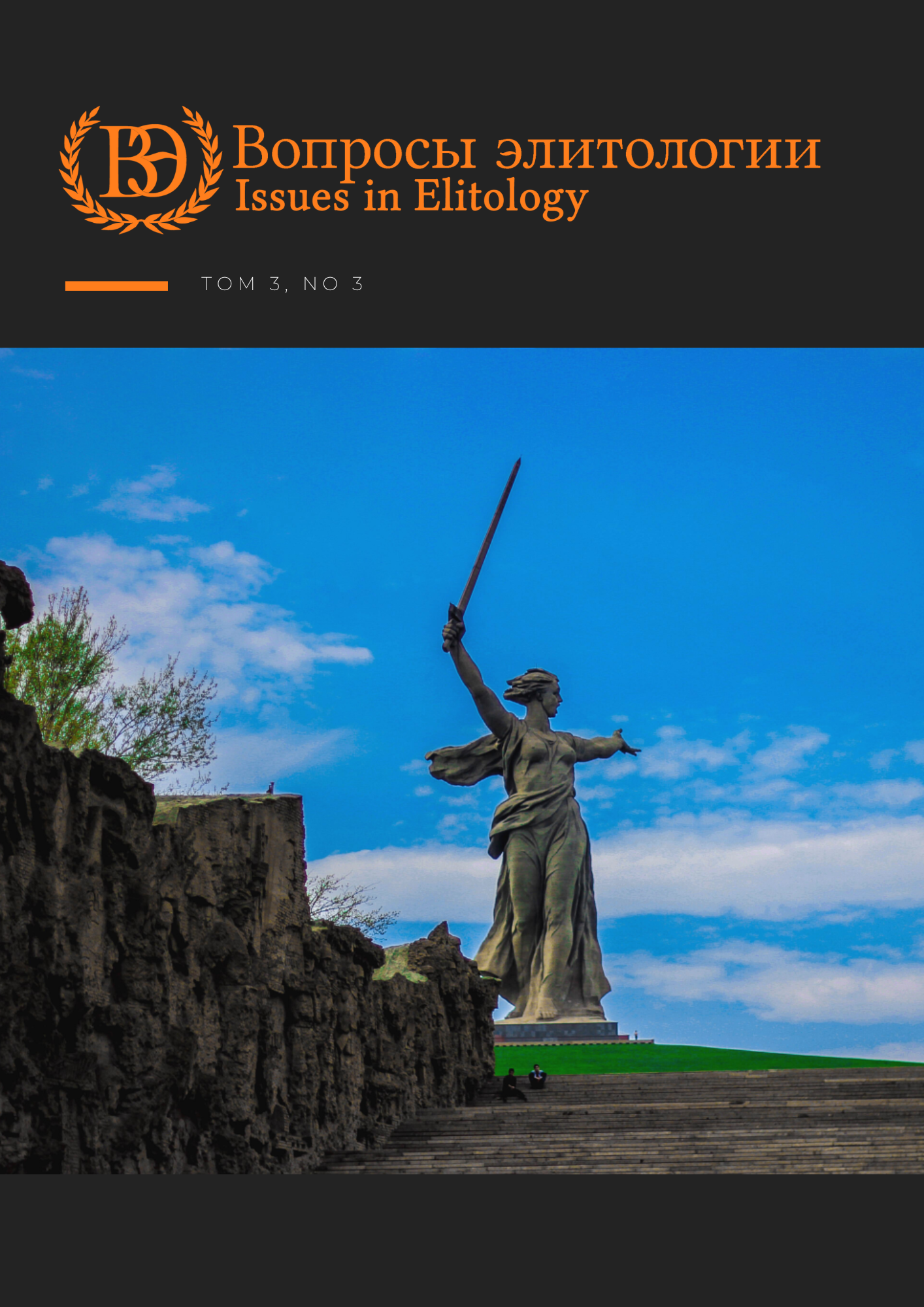Аннотация
Россия имеет весьма богатую историю своих политических элит, которая показывает многосложность процесса формирования и функционирования политического класса, свидетельствует как о его победах, так и поражениях, дает пищу для философских рассуждений и глубокого научного анализа. Российская элитологическая наука всегда отталкивалась от имеющихся отечественных традиций исследования и анализа правящих элитных групп. Эти традиции определяли ее лицо – стиль, характер, мышление, способность решать сложнейшие проблемы. Но вместе с тем она никогда не отказывалась и от мирового элитологического опыта, прекрасно разбираясь как в истории, так и в теории, и методологии зарубежных исследований.
В последние годы российские элиты не просто консолидировались внутренне, но стали играть весьма заметную роль и на международной арене. Изменение статуса повлекло за собой и необходимость переосмысления сущности элиты и ее лидеров, что вызвало небывалый интерес к отечественной элитологической науке. В результате элитология оказалась в совершенно новых условиях, когда политические события меняются вокруг нее со стремительной скоростью. Именно анализу этих изменений и посвящена настоящая работа.
Литература
Ashin, G. K. (2010). Elitology: History, Theory, Modernity. MGIMO (in Russian).
Ashin G.K. & Ponedelkov A.V. (2001). Fundamentals of political elitology (in Russian).
Ashin G.K., Ponedelkov A.V., Ignatov V.G., & Starostin A.M. (1999). Fundamentals of political elitology (p. 425) (in Russian).
Ashin G.K., Ponedelkov A.V., Starostin A.M., & Kislitsyn S.A. (2018). Fundamentals of political elitology. Lenand. (in Russian).
Goncharov, V. V. (2017). The influence of globalization processes on the organization and activities of national political elites. Russian Humanitarian Journal, 3. doi: 10.15643/libartrus-2017.3.6 (in Russian).
Drobinin, A. Yu. (2022). director of the Foreign Policy Planning Department of the Russian Ministry of Foreign Affairs, A. Yu. Drobinin "Lessons of History and the Image of the Future: Reflections on Russia's Foreign Policy." published in the journal International Life. Retrieved from Mid.ru website: https://mid.ru/ru/foreign_policy/news/1824829/ (in Russian).
Karabushchenko, P.L. (2016). V. V. Putin: Modern political leadership and problems of national security. Issues in elitology: philosophy, culture, politics, 151-159 (in Russian).
Karabushchenko, P.L. (2021). The idea of "empire" in the context of world history. Issues in elitology. Т.2, 3, 10-29. doi: 10.46539/elit.v2i4.82 (in Russian).
Karabushchenko, P.L. & Gainutdinova, E.V. (2020). Political hermeneutics and modern elitocracy. Issues in elitology. doi: 10.21146/0042-8744-2020-4-58-68 (in Russian).
Karabushchenko P.L., Ponedelkov A.V., & Vorontsov S.A. (2019). Political elites of the Russian Empire in V.O. Klyuchevsky's assessment. Science and education: economy and economy; entrepreneurship; law and management, 2, 119-124 (in Russian).
Kozhevnikova L.V. (2013). Transformation of the role of elites in the conditions of globalization (Issue 16). Vestnik GUU (in Russian).
Kryshtanovskaya O.V. (2005). Anatomy of the Russian elite (p. 384) (in Russian).
Kudryashov K.V., Ponedelkov A.V., & Sankova A.A. (2021). National policy of the Russian Empire. In Geopolitical, Socio-Cultural, and Elitological Aspects of the Formation, Degradation, and Revival of Imperial Intentions (pp. 209-216). JURIU Russian Academy of National Economy and Public Administration. doi: 10.46539/elit.v2i3.78 (in Russian).
Lavrov. (2017). Lavrov: We need to establish a post-Western world order. Retrieved from Rus.postimees website: http://rus.postimees.ee/4019535/lavrov-nuzhno-ustanovit-postzapadnyy-mirovoy-poryadok (in Russian).
Lavrov. (2022). Speech and answers to questions by Minister of Foreign Affairs of the Russian Federation Sergey Lavrov at a meeting with students of the Republic of Belarus. Retrieved from Mid.ru website: https://mid.ru/ru/foreign_policy/news/1820268 (in Russian).
Medvedev D.A. (2009a). Immediate priority - resumption of disarmament process. Izvestia, 2 (in Russian).
Medvedev, D.A. (2009b). People are able to change not from under the stick. Izvestia, 3 (in Russian).
Medvedev, D.A. (2022). P5: Farewell Songs of Political Pygmies of Pindostan. Retrieved from Telegram website: https://t.me/s/medvedev_telegram (in Russian).
Merkulov A.V. (2017). Political elite in the system of power relations: A theoretical approach. Vestnik PAGSU, 6 (in Russian).
Plyais, Y.A. (2009). Political Science in the Context of the Transition Era in Russia (in Russian).
Ponedelkov A.V. (1995). Elite (political and administrative elite: Problems of methodology, sociology, culture. Publishing house of the North Caucasus Scientific Center (in Russian).
Ponedelkov, A.V. (2010). Political science in the elitist dimension. : SKAGGS Publishing House (in Russian).
Ponedelkov A.V. (2002). The political and administrative elite: The Genesis and problems of its formation in modern Russia. Elitism in Russia: "for" and "against", 92-114 (in Russian).
Ponedel'kov A.V. & Starostin A.M. (2000). Regional elites: Tendencies and prospects for development. Rostov na Donu (in Russian).
Putin V.V. (2007). Please don't be angry at me. Rossiyskaya Gazeta, 4292 (in Russian).
Putin, V. V. (2018). Address of the President of Russia to the Federal Assembly. Rossiyskaya Gazeta, 46, 1 (in Russian).
Putin, V.V. (2022a). Plenary session of the St. Petersburg International Economic Forum. Retrieved from Kremlin.ru website: http://kremlin.ru/events/president/news/68669 (in Russian).
Putin, V.V. (2022b). ASI forum "Strong Ideas for New Times". Retrieved from Kremlin.ru website: http://kremlin.ru/events/president/news/69039 (in Russian).
Rodionov, M.A. & Volkova, T.A. (2019). Transformation of political communications in the dynamics of modern power elites Communicology (Issue 1). doi: 10.21453/2311-3065-2019-7-1-128-142 (in Russian).
Rudoy V.V. (2022). Power and Elite in the Age of Digital Transformation: New Challenges and Threats, Trajectories of Socio-Political Development of Modern Society (A. V. Ponedelkov & A. Yu. Goloborodko, Ed.; p. 512). Publisher of SRIU RANEPA. (in Russian).
Soloviev A.I. (1999). Power Culture of the Russian Elite: Temptations of Constitutionalism? Polis, 2, 65-80. (in Russian).
Soros, D. (2022). Speech at the 2022 World Economic Forum in Davos. Retrieved from Pikabu website: https://pikabu.ru/story/dzh_ (in Russian).
Starostin, A.M. (2006). Effectiveness of state power and governance (in Russian).
Surkov. (2019). Vladislav Surkov: Putin's Long State. On what's going on here at all. Nezavisimaya Gazeta (in Russian).
Usova, Y. V. (2008). Transformation of regional political elites in the post-Soviet period: On the materials of the Republic of North Ossetia-Alania. ROSSPEN (in Russian).

Это произведение доступно по лицензии Creative Commons «Attribution» («Атрибуция») 4.0 Всемирная.

